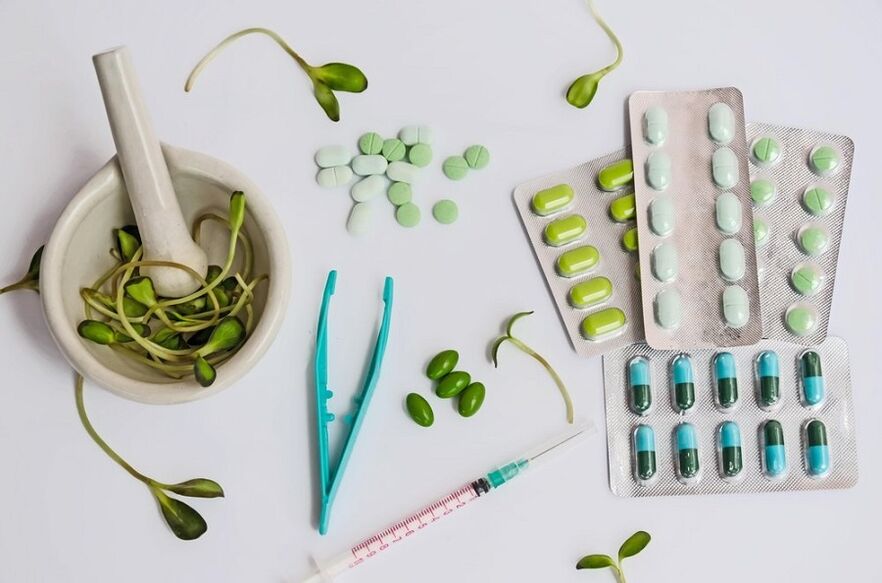The presence of parasites in the body leads to serious health consequences. These include the development of allergies, general exhaustion and a decrease in immune defenses, a state of hypovitaminosis and anemia, as well as disorders of the nervous system, neuroses, insomnia and loss of appetite. Proper treatment against parasites, their larvae and eggs, as well as the use of drugs that restore metabolic processes that are disrupted by the presence in the body of uninvited guests, can get rid of all these manifestations.
Getting rid of parasites: general principles

First of all, the treatment is aimed at completely ridding the body of worms and their larvae. If at least one parasite remains in the body, infection can occur again. Medicines alone are indispensable here, as many parasites are transmitted through dirty hands. In this regard, even if the patient has drunk an anti-parasite agent, but at the same time disregards the rules of personal hygiene and is constantly in contact with the source of the parasite (human or animal), rapid reinfection is quite possible.
Therefore, the treatment of parasites consists of two mandatory components:
- The use of parasite drugs to remove them from the body.
- Prevention of reinfection (personal hygiene, disinfection of the house, personal items and surfaces, treatment of all family members, pets).
In addition, there is often a need for additional therapy for those diseases caused by the parasite's presence in the body.
Treatment against parasites

The basis of therapy against parasites found in the body is the use of anti-parasites. These medicines can affect adults as well as their eggs and larvae. The choice of drugs against parasites should be made exclusively by the doctor, after receiving the results of all necessary examinations and assessing the general condition of the patient. Self-administration of parasitic drugs for both treatment and prevention of worms is prohibited, and this is due to several factors. First, all drugs against parasites belong to a special group of chemotherapy drugs, they have a strong toxic effect on living organisms. And the human body is no exception in this regard. The wrong dosage or selection of drugs can damage the liver or kidneys without harming the helminths.
Second, the doctor calculates the dose based on age and weight, uses the drug against parasites in a short time and the maximum allowable and safe dosage.
Third, according to the results of the analysis, an agent against parasites is selected that will be effective in this particular case, since different types of worms (as well as their larvae and eggs) die from different types of drugs.
Parasite Remedies: Drug Classification

Drugs that affect parasites and their larval forms, eggs, are divided into several classes depending on their effect on certain groups of worms.
The first group is a parasitic agent that affects a class of nematodes. They are divided into two subclasses:
- Medicines that are effective against intestinal nematodes.
- Drugs that act on extraintestinal nematode species.
The second group includes drugs that adversely affect the class of cestodes. They also fall into two subgroups:
- Medicines that act on intestinal parasites.
- Drugs that lead to the destruction of cestodes outside the intestinal lumen.
The third group includes all drugs against parasites that act on the leech. They are also divided into sub-categories:
- Medicines that act on intestinal parasites.
- Drugs that lead to the destruction of cestodes outside the intestinal lumen.
Drugs of the fourth group, which belong to a broad spectrum of activity, have a special place. This means that such a parasite remedy is effective against most of the known helminths.
Complementary therapy: treat allergies, increase well-being

In addition to anti-parasitic treatment, drugs are often used to improve the patient's condition, normalize well-being and generally have a strengthening effect. In addition, due to the strong allergy of the body in the event of parasite infestation, treatment of allergies with specific agents is indicated. The allergy occurs in response to the invasion and multiplication of foreign parasites and can worsen during the mass parasite deaths. Therefore, antihistamines are sometimes prescribed for the prevention of exacerbations of allergies against the background of the treatment of helminthiasis.
To relieve poisoning, remove waste products and antigens from parasites, especially with a pronounced allergy, while taking anthelmintics, simultaneous use of antihistamines and sorbents is indicated. In addition, sorbent and antiallergic therapy begins about three days before taking the main drug and lasts at least 5 days after it.
Helminthiases often lead to a disruption of the intestinal microbial flora, so it is recommended to actively use fermented dairy products, plant-based foods and preventive treatment with probiotics to restore normal biocenosis. During treatment, it is worth excluding irritating, heavy foods, dense foods and excess protein from the diet. The most useful are soups and light vegetable stews, cereals and dairy products. It is important to drink plenty of fluids to actively remove toxins from the body.





































